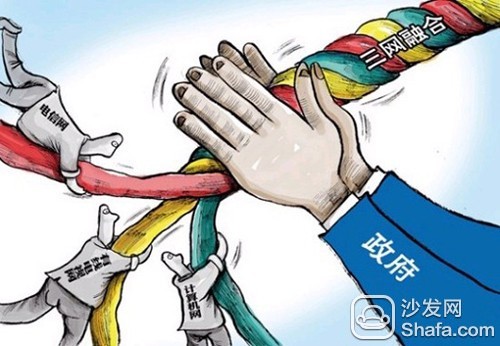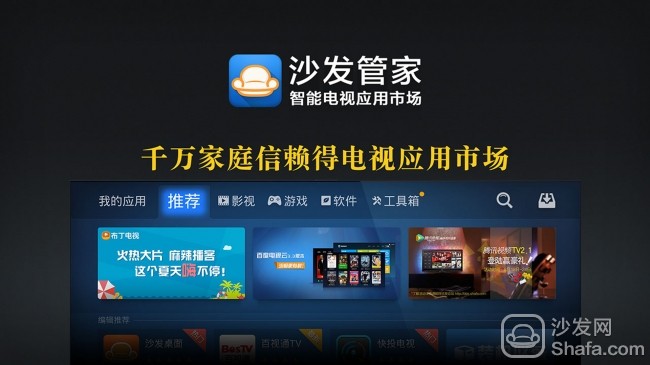
The State Council's three-network integration work coordination group recently issued a notice requesting relevant units and enterprises in the second-stage pilot areas to submit applications for two-way access to the industry authorities as soon as possible. According to the requirements of the 6th meeting of the Coordination Group, the two-way entry of business licenses will be completed by the end of this year.
Previously, in the cable TV operators' circles that were affected by IPTV and Internet TV, it was rumored that in order to protect radio and television as a mouthpiece, triple play was terminated. It now appears that triple play as a national policy has not been abandoned because of the protection of cable TV. The above notification makes the rumors unfounded.
At the beginning of the triple play policy, the main players involved in the triple play competition were broadcasting and television camps. With the implementation of the broadband China project, the telecommunications network has been able to carry TV services. The Internet was originally based on the telecommunications network. So from the perspective of telecommunications, triple play has already been achieved. However, radio and television, which are hampered by the management and technical systems, as well as the balance of interests, are still slowly developing based on their respective interests in a closed environment.
Whoever knows how to make a bite out of the way, Internet companies have gradually started to drop the OTT of the telecom operators' basic services with the help of the increasingly smooth Internet. Telecom operators have the potential to become pipelines. Broadband Chinese projects that allow broadband to become wider and wider have also created conditions for Internet companies to develop OTT TV services. Fortunately, there are channels and telecommunications can be maintained, with the development of network video business traffic can be carried out to maintain revenue growth. The development of Internet TV, but the original triple play passive participants - cable operators to OTT. From the rapid development of the Internet box in 2013, it can be seen that if it were not strictly controlled by the SARFT in 2014, the speed of regionalized closed monopolies of cable television was quickly curbed. This is the background of the statement that triple play has been terminated.
From the perspective of the new government's emphasis on deepening market reforms and promoting industrial upgrading, it is impossible for cable TV to seek policy protection in the name of the mouthpiece for a long time. Abandoning the idea of ​​closing a monopoly to adapt to market development is the only way. It is necessary to know that the role of a mouthpiece is a television station, and the role of cable networks, telecommunications networks, and the Internet in the transmission of television is not yet fundamentally different. CCTV through the cable network to the user is CCTV, and through the telecommunications network and the Internet to the user will not become CNN, a closure letter will let many Internet TV content disappear from the TV screen. This further embodies the same attributes of the cable television network as the telecommunications network and the Internet. That is, the transmission pipeline has no political attributes and only economic value. The practice of closing down monopolistic operations under the name of security is already known to all passers-by, and relying on closed monopolies may make the value of cable television networks much less. This is because the cable television network is inseparable from the law of network development, that is, the number of terminals connected to the network determines the value of the network. The increasing value of the Internet is due to the fact that there are various terminals connected to it, and the technical closure of the radio and television network makes it possible for only broadcasting and TV set-top boxes to be connected to it. The telephones connected to the telecommunication network are not divided into Unicom Telecom. Even the rich and middle-aged China Mobile is still trying its best to encourage terminal manufacturers to produce multi-mode mobile phones. In addition to connecting to its own network, it can also connect other competitors and partners' networks. And cable companies only allow designated set-top boxes to connect with their own networks.
The lack of competition has led to the poor backward experience of the technology of the top-box of the Guangzhou Electric and the high prices caused by the regional monopoly, so that young viewers who most need to accept traditional TV media education but like fashion are far away from TV. The transmission function of cable television networks as a mainstream traditional media is declining, which has become the main reason for the decline of the influence of traditional television media.
Abandoning the closed monopoly thinking, introducing more television terminals with an open mindset, and strengthening the spread of the cable television network as a traditional television media, is a problem that cable TV operators must pay attention to, and it is also a state enterprise’s voice as a dissemination party. Political obligations.
Recommended installation sofa butler Download: http://app.shafa.com/
